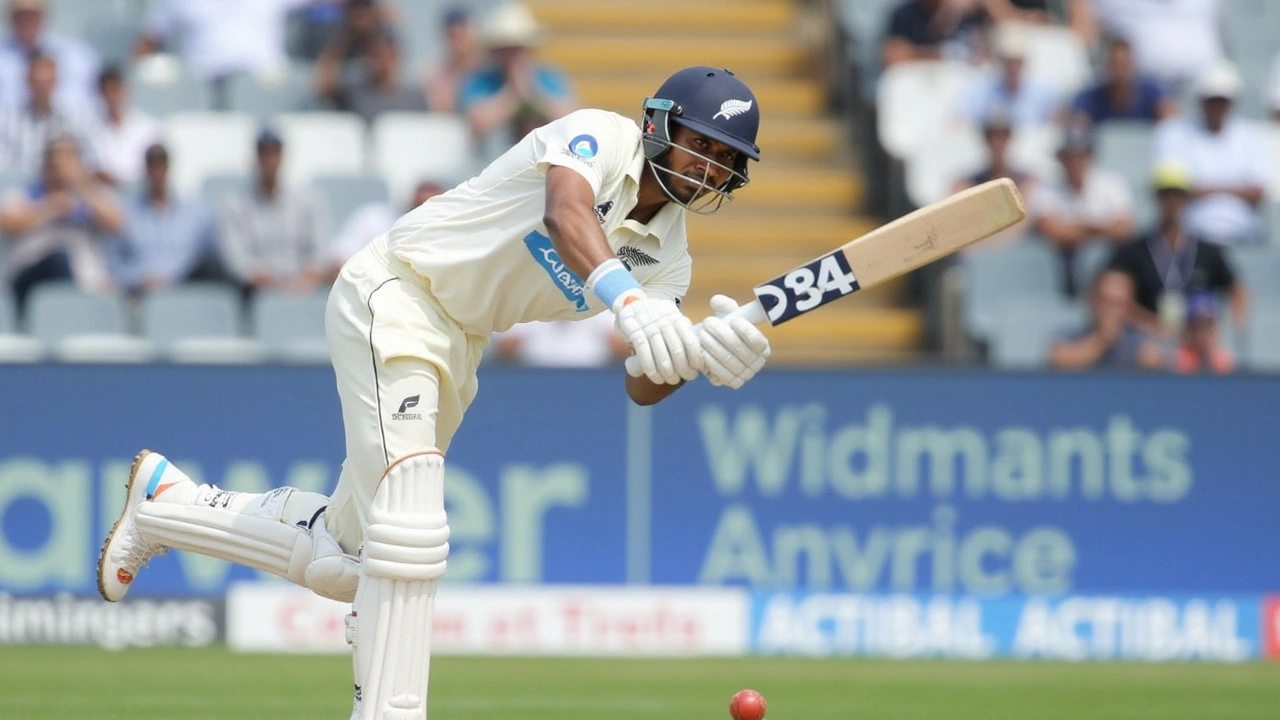New Zealand Opts to Bat First
The atmosphere in Pune was electric as New Zealand's captain, Tom Latham, decided to bat first after winning the toss against India in the second Test. This decision reflected New Zealand's intent to dominate early in the game and put India on the back foot. However, the pitch conditions were challenging, with the surface appearing to favor the bowlers slightly more as the day progressed. India, on their part, made some strategic changes to their lineup, bringing in Washington Sundar, Akashdeep, and Shubman Gill, hoping to fortify both their batting and bowling arsenals.
A Solid Start but a Faltering Finish
New Zealand openers Devon Conway and Tom Latham began the innings with composure and skill. Their partnership was initially resilient against the might of the Indian fast bowlers, and it seemed as though they might build a formidable opening coalition. Conway, in particular, was skillful in his shot selection, taking boundaries when the opportunity arose, including a notable four off Akash Deep's lively delivery. Yet, as the innings wore on, the Indian bowlers found their rhythm. Despite the initial steadiness, New Zealand was unable to maintain this momentum. The middle order wavered, failing to capitalize on the platform set by their predecessors, resulting in New Zealand being all out for 259.
India's Response Begins
As the Indian team took to the field, the anticipation among fans was palpable. Despite their disciplined efforts with the ball, the start of India's batting innings didn’t go as smoothly as hoped for. Rohit Sharma, known for his explosive batting, unfortunately, didn’t add to India's tally, falling for a duck. This unexpected loss was a moment of concern, but it also brought to the forefront the unpredictable nature of Test cricket and the challenges posed by the New Zealand bowling attack. By the end of day one, India managed to put 16 runs on the board for the loss of this crucial wicket, leaving many pondering how the rest of the batting line-up would fare on the subsequent day.
Key Performances and Strategic Movements
A notable aspect of the day's play was the vise-like grip maintained by Indian bowlers, particularly Jasprit Bumrah. Although Bumrah couldn't secure any early wickets, his consistent and probing lines restricted New Zealand's scoring opportunities, adding pressure on their batsmen and leading to mistakes. Such disciplined bowling created the perfect situations for his teammates to capitalize and take crucial wickets. Akashdeep also made his mark by troubling the batsmen with his aggressive pace and accuracy. On the batting front, despite the day's early setback, there were moments of brilliance in the form of good running and shot placement from both sides, illustrating the strategic mindset cricket demands.
Looking Ahead to Day Two
With India ending the day at 16/1, the focus firmly shifts to how well the Indian batsmen will adapt to the challenges posed by the New Zealand bowlers in the subsequent sessions. The opening day has set the stage for a gripping contest between bat and ball, exaggerating the importance of strategic insights and the ability to adapt to varying conditions. Rohit Sharma's evaluation of the previous game highlights positivity, acknowledging the need to stay adaptable regardless of the surface or moments of adversity. Regardless of the early wickets, it is imperative for India to build upon the groundwork laid by their bowlers and cultivate a substantial lead.
| Batsman | Runs | Balls |
|---|---|---|
| Devon Conway | 52 | 84 |
| Tom Latham | 36 | 58 |
| Jasprit Bumrah | 0/53 | 20 |

Adapting to Challenges
Cricket enthusiasts know that matches aren’t just won by individual performances but by playing smart, synergized teamwork. As the Test unfolds, another significant thing will be to watch how the pitches evolve, influencing batting styles and bowling tactics. This is a pivotal aspect that both teams will need to adjust themselves to, as Test matches hinge largely upon exploiting such minute nuances. Day one's proceedings leave us eagerly awaiting the adaptability and resolve of both teams as they gear up for the battle on Day two.


Author
Ra'eesa Moosa
I am a journalist with a keen interest in covering the intricate details of daily events across Africa. My work focuses on delivering accurate and insightful news reports. Each day, I strive to bring light to the stories that shape our continent's narrative. My passion for digging deeper into issues helps in crafting stories that not only inform but also provoke thought.